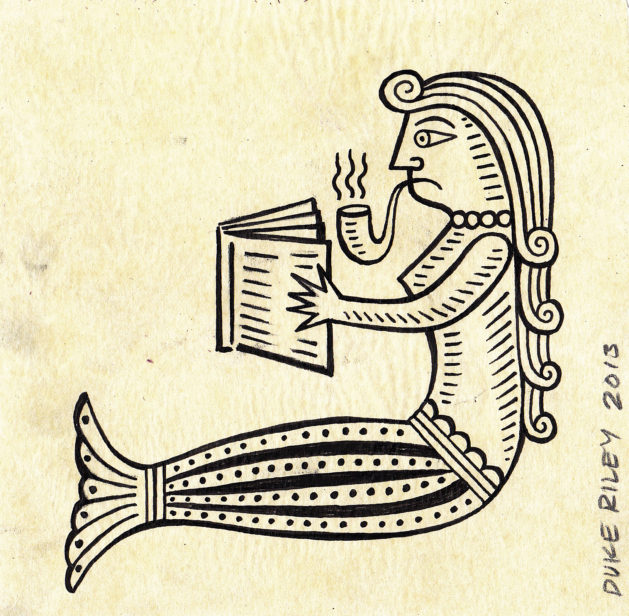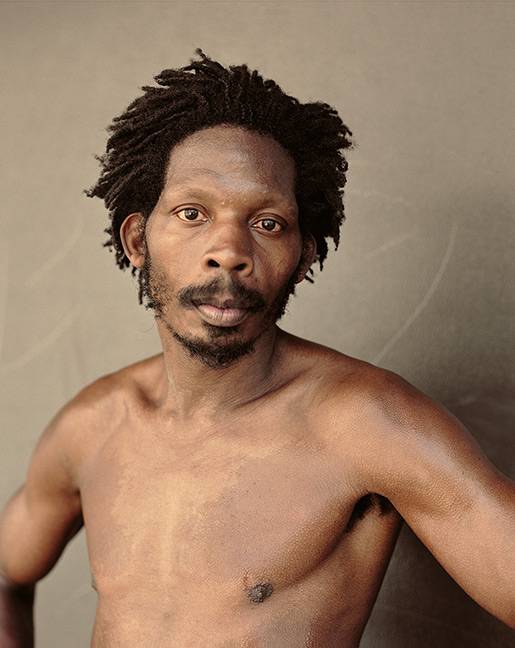His Gift
by Toti O’Brien
He has lost it entirely on Christmas Day. Why then? Wasn’t he home with his wife and children? Busy like everyone else? What happened that tipped off the balance for good?
She will never know. Probably nothing happened. Simply, the last straw abated the camel or— to use a different metaphor—the last drop made the vase spill.
He started calling early, first on the home line. When she answered he uttered his absurd claim: could he borrow her child for a hike in the mountains, in search of those herbs he has mentioned, only thriving in the wilderness?
The hike would be long: all day, kind of unpredictable. Giving a come-back time isn’t possible. She should leave the boy for the night: he could sleepover, then be “returned” in the morning.
Sure. She’d confide her boy to the middle-aged instructor of an after-school class, for the two of them to hike the mountains on Christmas Day, in search of local flora. Hallelujah. How could he insist on it? How could he not be afraid of her calling the police, reporting his request, letting it speak by itself?
By the way… why didn’t she already? Wasn’t she aware, yet, of the guy’s intentions? Hundred percent? Thousand percent. Why didn’t she report him? She was scared, and that chilled the blood in her veins.
Her blood had slowed down since she first suspected, first noticed the incongruity of the man’s behavior. Since he first came up with absurd demands, such as giving the boy a ride on the way to a field trip. What? Didn’t she have a car, like all the other parents? She declined, of course: but she started feeling troubled, agitated.
Then the insistence about giving the child (for he was so gifted, so exceptional) a special training. Private: one to one. He would start him on herbariums, microscopes—more than all, the wilderness… those hikes on unspecified little trails to find the rare berry, the unique mushroom…
All right! Did he think praise for the boy’s talent would give him free leave? Would those compliments so blur the mother, she would not realize the hazards, the agenda? Come on…
Well: it must have worked in the past, for he pressed the gas button—so to speak—without hesitation. And, to tell the truth, his game pushed her off balance, a bit. It was important—very important—that the child felt empowered, trusted, valued. It was paramount especially in the delicate phase he was undergoing. A moment of confusion, demotivation…
She had been so grateful, so happy, when the instructor (he looked serious, reliable, a true family man) had applauded the boy’s attention, his uncanny capacity of recognizing and handling plants, butterflies, insects, flowers. “This is not of his age!” he complimented. Then, “He’s truly prodigious.” Then, “He will be my best disciple.” Disciple, he said. Not student.
That is when she first wavered… the first note that sounded out of tune, shrieking. Still, withdrawing at that point seemed irrational, wrong, even dangerous. The boy—who was aware of the praise, of the unique position he had suddenly acquired—could only interpret her decision as cruelty. As a nasty caprice on her part, and that was the last thing she wanted.
In fact, for a long time she hadn’t seen him happy. Positively interested. She perceived a tangible enthusiasm, a joyfulness, when she brought him to class after lunch. Or when, having waited outside for an hour, she returned to find him busy with petals, seeds, winged things. He stood in front of the bench, his blond head haloed with pride. He emanated a convincing well-being she, alas, wasn’t accustomed to seeing. Silently, she sipped in the vision. She would not—by all means—destroy it.
But she should. On the last class before the break, she had come in the room earlier than usual. She had sat on a small chair along the wall. Time wasn’t over yet but the instructor, incongruously, came to see her: crossing over the room, leaving the kids unattended. That was weird, but he seemed relentless, as if his body escaped his control. As if his legs couldn’t help skipping under his center of gravity, lead to the left, hurry towards the corner where she sat—uneasy, confused.
He came several times, each time speaking more hurriedly and—oh god—more loudly. He said he’d like to keep the boy after class, to teach him some more. Today it would not be possible, she said. Then he said he would like bringing him to his lab… to his home, showing him his collection. No reason for her to come by: he would drive him back afterwards. Show his collection to him? That sounded like terrible literature. That sounded like a joke.
Sorry, today it wouldn’t work, she repeated. Shyly she lowered her voice, while his kept rising. That made her uncomfortable. She stole glances to the right, to the left: parents had started filtering in, class was about to end. Did they hear him? Wasn’t he embarrassed? Afraid? If they heard him (how could they not) wouldn’t they notice the absurdity? If they didn’t notice it, would it mean she was wrong, making a mountain of nothing?
The mountain. The man seemed to be obsessed with it. He had mentioned it early in the process, and he often came back to the point. Precious things—herbs, flowers, insects, shells— could only be found in the mountains, on remote hiking tracks he had previously explored. Those hikes were the non plus ultra: the accomplishing step for a true naturalist. He had to bring his special disciple in the mountain, for his training to be complete. When would she let him? (That she would not wasn’t thinkable).
The entire mountain thing filled her with horror, even more than the suggested overnight at the man’s house (where, by general understanding, a wife and two daughters lived). Did he invent a family? Hard to say: the guy looked perfectly normal. And while, in the beginning, such appearance side-tracked her, soon it became a flag, a bell deafening her with its toll.
Idiot, she said to herself, how would you want him to look? Should he wear a shirt with “pervert” written on? Should he look disheveled, hair tousled, bloodshot eyes, fly unzipped?
He looked perfectly normal. Until, on the last day of class, though nothing had changed at his appearance she remarked the phenomena… his legs rushing away, as if a cut split his body at waist level—the underneath section taking a life on its own. And his tone of voice rising, rising, uncaring of witnesses: as if the volume button had come loose.
On their way home, she wondered why her son mentioned nothing about those excursions. Why he didn’t insist on them, didn’t protest her refusal? He had certainly heard the entire conversation: the last time it was uttered while she helped him into his coat. But he remained quiet. What did he think? Was he preoccupied? What did he sense? What did he understand? She didn’t dare asking.
Christmas day. After she had briskly declined—with an even tone, not unkind but certainly curt—the man’s demented suggestions…
How did he get her number? Easy enough: their data were printed on the registration form… But on Christmas day, after swallowing her denial, he started calling the boy’s cellphone. Did he have that number as well? How so?
She heard the rings. The boy was in his room, playing games at the computer, living his life. Anyone could have called: his dad, his grandparents, family, even friends: 25th of December, for god’s sake… But those rings—she perfectly heard them from her room, the house was very tiny—were ominous. Ominous.
She heard three during the morning. At lunch she did not ask about it. She wasn’t the nosy type…There was a lax serenity about the day, sunless but also rainless—fragile, kind of suspended.
In the afternoon the boy returned to his room. No more calls, apparently. He came out at some point, though, handing his muted phone. Mom?” he said, “He keeps trying.” He was quiet, he looked tranquil: he just gave her the phone. On the screen she saw the same number lined up for many, too many times. Just a number: no caller identity, but it wasn’t needed. The boy apparently knew. He was tranquil, and quiet.
Her eyes glued on those digits, she felt her stomach gape, her heart sink a couple inches, and, again, her blood chill. Those cyphers looked ominous. “We will not respond,” she said. Her tone banal, nondescript. The boy answered nothing. “Would you like to leave your phone here?” she added. “No,” he said, resuming to his room.
Her blood also resumed its regular circulation. She felt better. She felt they would handle this: she wouldn’t have to call the police. What could she say? Nothing was in the open. Were those calls sufficient to accuse? Of what? He looked normal. Don’t they all? He was only calling. On Christmas day? What did he want? Going for a hike in the mountain, he had said, earlier on. What did he say to the child? The child didn’t pick up the phone. Why didn’t he? What did the child know?
The mountain sounded ominous. Wasn’t the overnight at his house good enough, for the obvious perversity he had in mind?
Obvious. Why didn’t she call the cops, then? She didn’t have proof. He looked like a family man. Officially there were a wife and two daughters. What hell would she unleash over wife and daughters, by calling the police?
And again, wasn’t his house enough? Why the mountain?
He would kill the boy afterwards. He would push him down a ravine, hide him in the woods. Horror grabbed her: come on, why the mountain, if not…? What are mountains for, if not?
Her blood simply froze. What if she had said: “I’d allow this hike, sir, only at the condition of me coming along.” Ha, ha, ha. But then, couldn’t he kill her? Push her down a ravine? Of course. Then he would do what he wanted. Then he would kill the boy. Probably.
The hike, of course, would never take place. She knew—she had no doubt—but now, on Christmas day, they also needed for the phone calls to stop.
She was trying to take her mind off, to move over, when she heard the rustling outside. Light, like leaves moved by the wind… On the porch? Well, that sounded like someone pushing a flier in the box, sliding it through the screen door. On a holiday? Any time… no need to be alarmed.
Today, though, something weird is going on. Abnormal. She is scared. She should verify.
She walks, softly, she watches from the peephole. No one on the porch, nothing. Then she sees him: he has stepped down the stairs dividing the porch from the curb. He stands at an angle, a bit hard to spot but not hiding, really. His expression impenetrable, obtuse. There is something about him, suspended… suspended, like the weather.
Now her body escapes her. Before she can think she has opened her door—the screen still in front of her. In the screen, right there, at chest level and impossible to miss, there’s a package. She grabs it without thinking, then she takes a step forward. He also does. He’s back on the stairs: they are facing each other. There’s a quiet between them… like a pillow. A cushion of quiet—only brittle, as if made of glass. A Christmas ball, a glass ornament… clear, transparent. She can feel it. She can feel that with another step she will break it, and that scares her.
Still her body is not under control, her legs skip under, move forward. She has taken another step. He did too: backwards. He has lowered himself, again, at street level. And the space that divides them has remained miraculously unchanged. A frame, as if they were a pair of ballroom dancers. Oh god.
He looks strange… yet normal. Horribly, disgustingly normal. She had never noticed, in fact, how distasteful is his peculiar normality. He also looks agitated, greedy, and insecure at the same time. He has started talking. He’s repeating the same litany, only a bit rushed, with a few mannerisms making him sound like a parrot. Like a tape, a broken recording.
“Today,” he says, “is the perfect day. The weather: ideal. And it is a holiday.” Oh well, did he notice? Today, he says, is the day for that famous hike in the mountain. He has tried calling (she knows, she has answered, doesn’t he recall? She has said no, no, no). Then he thought coming here would be simpler. Can she call the boy, get him ready?
Did he find the address on the damn registration form? He must have. She has taken another step forward, unaware of her gestures, her posture, her acts. The package he has stuck into the door, roughly, badly wrapped, is in the hand that she nervously motions in front of her. The package—narrow, stiff, elongated—serves as a baton, a cane, punctuating her words.
She is talking indeed: very slowly, each word kind of exploding with friction. Each word like spit. “Sir!” she says, “Sir!”
With each word, she takes a step forward and the man, almost graciously, recedes. It’s a dance. “Don’t, you, ever, dare!” She is at the edge of the porch. “Approach, my child, my house, myself!” “Say, another, word!” “Never! Never! Never!” The words jump like frogs. They fly out: black crows, loudly cackling. She bites them with her teeth au passage. Her words, like crows, fly after the man, threatening to claw at his eyes.
He is murmuring now. She barely grasps his last sentence, “I had brought him a gift. I have left it at the door.” Then he turns around. He is walking away. From the back he looks bent. Deflated.
She stands on the porch, facing out, her back to the front door, blocking the entrance. She can’t move now, at all. Her legs feel stiff and sore. She’s suddenly aware of the thing in her hand: obtrusive and kind of heavy. She tears the piece of tape, holding the thin cardboard wrap. She does it in a rush, almost furiously, yet not quite herself.
It’s a knife. Huge. Sharp. A hatchet of sort. Certainly for cutting herbs, stems, and branches. Certainly a nature thing, a tool of the trade. Certainly. He’s come to bring a knife. He has left it there, stuck inside the screen door, at chest level.
Toti O’Brien’s work has appeared in Intrinsick, Alebrijes, Entropy and Random Sample, among other journals and anthologies.






